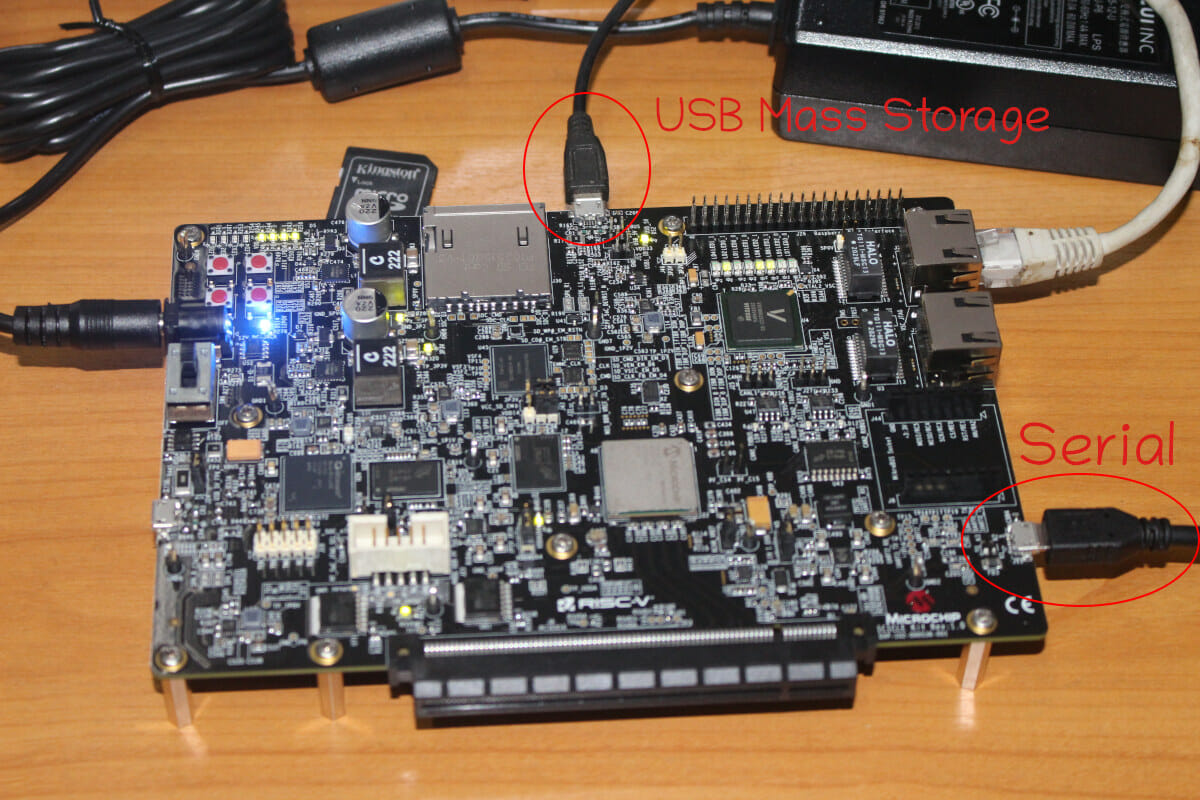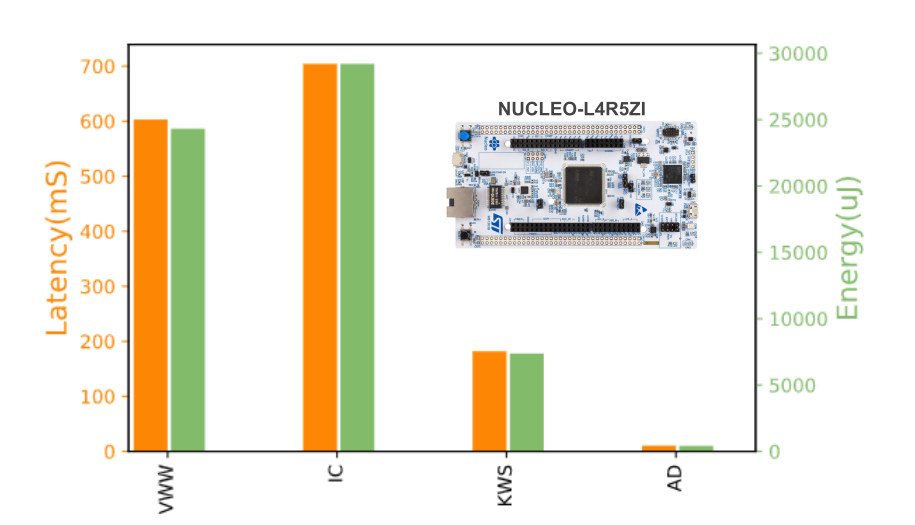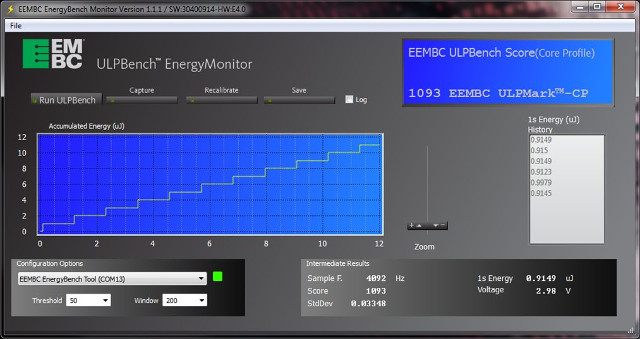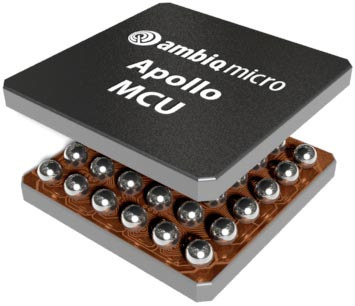Last month I received Microchip PolarFire SoC FPGA Icicle development kit that features PolarFire SoC FPGA with a Penta–core 64-bit RISC-V CPU subsystem and an FPGA with 254K LE, and booted it into the pre-installed Linux operating systems based on OpenEmbedded. Today, I’ll show how to get started with the Yocto BSP and run the EEMBC CoreMark benchmark, and I’ll check out the FPGA with Libero SoC Design Suite in a couple of weeks. Operating Systems supported by PolarFire SoC FPGA My initial idea was to focus this part of the review on Linux on RISC-V status, checking some system information, running some benchmarks (e.g. SBC-Bench), compiling the Linux kernel, and installing services like a LEMP stack (Linux, Nginx (pronounced Engine-X), MySQL, PHP) which could be used for WordPress hosting for instance. But then I looked at the operating systems supported with Microchip PolarFire SoC FPGA. There’s a Yocto Linux […]
Benchmarking TinyML with MLPerf Tiny Inference Benchmark
As machine learning moves to microcontrollers, something referred to as TinyML, new tools are needed to compare different solutions. We’ve previously posted some Tensorflow Lite for Microcontroller benchmarks (for single board computers), but a benchmarking tool specifically designed for AI inference on resources-constrained embedded systems could prove to be useful for consistent results and cover a wider range of use cases. That’s exactly what MLCommons, an open engineering consortium, has done with MLPerf Tiny Inference benchmarks designed to measure how quickly a trained neural network can process new data for tiny, low-power devices, and it also includes an optional power measurement option. MLPerf Tiny v0.5, the first inference benchmark suite designed for embedded systems from the organization, consists of four benchmarks: Keyword Spotting – Small vocabulary keyword spotting using DS-CNN model. Typically used in smart earbuds and virtual assistants. Visual Wake Words – Binary image classification using MobileNet. In-home security […]
EEMBC IoT-Connect is a Family of Benchmarks Designed To Test the Power Efficiency of IoT Devices
EEMBC, the Embedded Microprocessor Benchmark Consortium, has been providing benchmarks for embedded systems since 1996, including ULPBench helping to rank micro-controllers by their power efficiency. But with the Internet of Things gaining traction, it’s important to test more than just the MCU core’s power efficiency, and having a benchmark taking sensors and connectivity into account would be useful. That’s exactly what EEMC IoT-Connect benchmark family aims for with the three main characteristics: Provides flexibility to accommodate various communication protocols (e.g. Bluetooth, Thread, LoRa, WiFi) Portable to work with any vendor’s microcontroller and radio-module products Compatible with EEMBC ULPBench and EEMBC IoT-Secure benchmarks The first benchmark of the family is IoTMark-BLE connectivity profile that supports Bluetooth (LE) MCUs. The benchmark requires fixed payload size, frequency of transmission, and transmit power, and performs a complete sequence of event ranging from sensor reading, to BLE notifications, and command write and CRC. The IoT-Connect […]
Ambiq Micro Apollo Low Power MCUs Promise Cortex M4F Performance at Cortex M0+ Energy Efficiency
Ambiq Micro is a US company founded in 2010 that focuses on “extremely low power” semiconductors leveraging their patented Subthreshold Power Optimized Technology (SPOT) platform. Earlier this year, they announced their first low power Cortex-M4F MCU Apollo family with claims of 5 to 10 times lower power consumption compared to other micro-controllers with the same performance. According to an EETimes article, they’ve at least partially backed their claims with a live demonstration at ARM TechCon 2015. Before checking out the test results, let’s have a look at the main features of Apollo MCU family: 32-bit ARM Cortex-M4F processor @ up to 24 MHz, with FPU, and wake-up interrupt controller with 12 interrupts Up to 512KB flash, 64-KB low-leakage RAM “Rich set of timing peripherals” Peripherals I2C/SPI master; I2C/SPI; UART; 10-bit, 13-channel, 1MS/s ADC Temperature sensor with ±2°C accuracy Voltage Range – 1.8 to 3.8V Power Consumption: active mode: 30µA/MHz (executing […]






